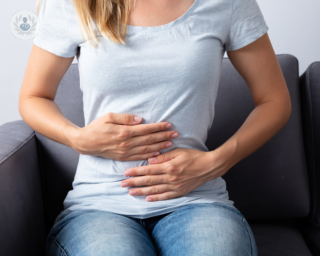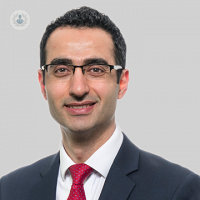Diarrhoea
Dr Patrick Wilson - Gastroenterology
Created on: 11-13-2012
Updated on: 09-21-2023
Edited by: Carlota Pano
What is diarrhoea?
Diarrhoea is characterised by a greater fluidity and volume of bowel movements. These stools can sometimes contain blood, mucus, pus, and undigested food.
When diarrhoea lasts for many days, it can be a sign of a more serious problem. Chronic diarrhoea that lasts for at least four weeks can be a symptom of a chronic disease.

What symptoms does it present?
The main symptoms of diarrhoea, in addition to greater fluidity and volume of the stools, are:
- cramps or pain in the abdomen
- urgent need to go to the bathroom
- loss of bowel control
If the cause of the diarrhoea is due to a virus or bacteria, other symptoms such as fever, chills, and blood in the stool may appear.
In addition, diarrhoea can cause dehydration.
Causes of diarrhoea
The most common causes of diarrhoea are:
- Contaminated food or water
- Viruses, such as the flu
- Parasites
- Certain medications such as antibiotics, anti-cancer drugs, or antacids that contain magnesium
- Diseases of the stomach, the small intestine or the colon, such as Crohn's disease
- Irritable bowel syndrome
- Intolerance or sensitivity to certain foods, such as lactose intolerance
Sometimes, a specific cause is not found. If the diarrhoea disappears after a couple of days it is generally not necessary to investigate further.
Can it be prevented?
Two types of diarrhoea can be prevented: rotavirus diarrhoea and traveller’s diarrhoea.
There are vaccines available for rotavirus.
As for traveller’s diarrhoea, it is important that when travelling, we are careful with the food and beverages we consume in certain countries or in certain regions. Speak to your doctor before going on holiday for advice on avoiding traveller’s diarrhoea. It can help to avoid eating raw fruits and vegetables, and to only drink bottled water.
What is the treatment?
The main objective of the treatment for diarrhoea is to replenish fluids and electrolytes lost due to dehydration. Depending on the cause, your GP or specialist may prescribe a pharmacological treatment to either stop the diarrhoea or treat the infection.

















